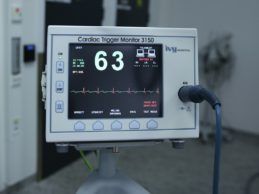Healthcare providers are seeing between 50 and 175 times (1) more patients via telehealth than before. Telehealth platforms* offer solutions for a wide array of different healthcare issues. An estimated 20 percent of all emergency room visits and 24 percent of routine office visits and outpatient volume could be delivered virtually via telehealth.
Telehealth is a win-win for providers and patients. It both increases the availability of care while also reducing costs. However, telemedicine
Read More
Malware
Do We Know When Medical Devices Fail?
Since 2015, the FDA and the US Department of Homeland Security have been releasing warnings about products that due to their vulnerabilities threaten patient safety. This includes MRI machines and drug infusion pumps that supply patients with a wide diversity of drugs, including insulin, antibiotics, chemotherapy drugs, and pain relievers. The interconnectivity of smart devices with medical clinical systems leaves them vulnerable to security breaches just like any other networked computing
Read More
Solving Healthcare’s Data Challenges With Storage-As-A-Service
Managing healthcare data is a special kind of a nightmare for IT professionals. First, the industry is highly regulated. The Health Insurance Portability and Accountability Act (HIPAA) requires strict attention to a complex set of rules governing access, security and privacy. A failure to follow them can result in heavy fines and ruined careers.
Then, there’s the problem of capacity, because, in healthcare, not only is the amount of data doubling every two to three years, but individual files
Read More
Accounting for Inherent Vulnerabilities in Healthcare Blockchain Adoption
In the digital economy, every industry runs on data. In the healthcare industry, there is no greater need than to have total view and capitalization of data. But this need inherits others—the need for security, transparency, and interoperability.
In an industry rife with inefficiencies and systemic vulnerabilities (e.g. counterfeit prescription drugs), the benefits of using blockchain to address these needs cannot be ignored. The application of this technology will provide secure
Read More
What’s AI’s Holdup in Healthcare? The Answer Is In The Cloud
When you consider what technology has the most potential to transform healthcare over the next decade and beyond, no doubt your first thoughts turn to artificial intelligence (AI), machine learning (ML) and deep learning (DL). Already these technologies are showing promise in helping clinicians work faster and smarter, identifying trends, alerting us to signs that can predict and prevent diseases, and providing insights into potential treatments and cures.
But AI, ML, and DL alone cannot
Read More
3 Ways to Protect Hospital Data from Email Spoofing Attacks
Picture this: you are a first-year nurse with an unusual case that you and your colleagues have never seen at your hospital. To expedite the formulation of a treatment plan, you turn to a private Facebook group for nurses to which you belong. Since joining the 8,000-person closed group, you’ve witnessed your peers share information - with important details withheld - as to not break privacy laws, but as a means to generate group think on analysis and recommendations. You’ve seen first-hand how
Read More
3 Major Problems With the Medical Device and Wearables Market in 2019
Technology can improve human life in significant ways and aid in the fight against troublesome illnesses. Unfortunately, no technology is perfect — and newer technologies are especially prone to growing pains.There are three major problems in today's medical devices and wearables market: potential sabotage of the devices themselves, devices as a backdoor into networks and patient data, and device manufacturers taking advantage of regulatory loopholes to get their products on the market.1. Many
Read More
Security Vulnerabilities Detected in ICDs: Addressing Ransomware Risk in Medical Devices
Medical device usage is on the rise, and that reality potentially puts people at risk if those gadgets have security flaws. It's crucial for device manufacturers, industry regulators and health practitioners to work together to ensure safety are paramount as adoption rises.Internal health devices are particularly at risk, especially since patients and providers may not immediately notice issues. The people who use or prescribe them assume they'll work as expected and typically don't have ways to
Read More
Why It’s Time for Hospitals to Become Immune to Ransomware
Editor's Note: Greg Maudsley is a cyber security expert at Menlo Security, a Silicon Valley-based cyber security company that protects organizations from cyber attack by eliminating the threat of malware.Hospitals and other healthcare organizations (HCOs) are increasingly singled out by cyber criminals for ransomware and other attacks. Not only are patients’ sensitive records being targeted, but also – as the FBI warns – their intellectual property or credit card information. The
Read More
3 Basics of Effective BYOD for Your Healthcare Organization
Imprivata’s David Ting talks about the basics of effective BYOD for your healthcare organization in successfully establishing mobile security.
Read More








